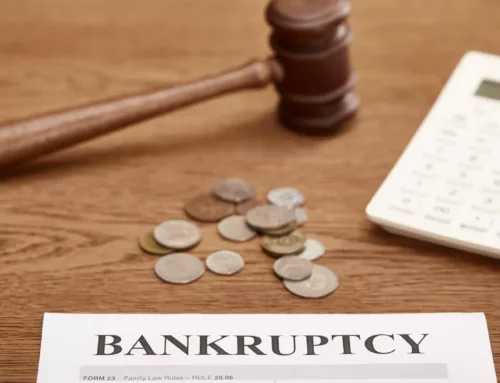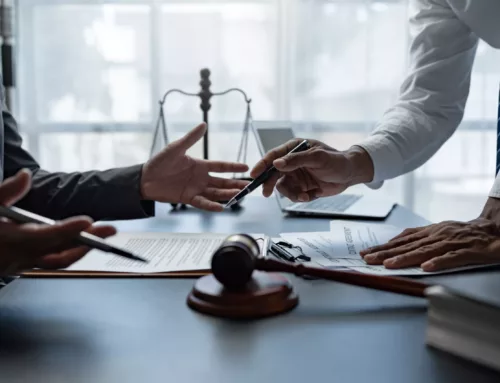Before you declare bankruptcy, you must know how to choose the best bankruptcy type that will solve your debt problems and help you achieve a debt settlement. Chapter 7 and Chapter 13 are two common types of bankruptcy. If Chapter 7 liquidation bankruptcy doesn’t work for you, then Chapter 13 might be the key to help you pay off all your debts and have a fresh start. An experienced Wyandotte bankruptcy attorney can help you assess your finances and decide the most appropriate bankruptcy chapter that will work for you.
This article will answer the following questions to help you understand how Chapter 13 bankruptcy works:
- What is Chapter 13 Bankruptcy?
- How Do I Qualify For Chapter 13 Bankruptcy?
- How Do I File Chapter 13 Bankruptcy?
- Do I Have to Pay All of My Debts?
- How Long Will a Chapter 13 Bankruptcy Stay on My Credit Report?
- What is the Role of a Bankruptcy Attorney?
What is Chapter 13 Bankruptcy?
Chapter 13 bankruptcy is also called the “personal reorganization” or “wage earners” bankruptcy. It is a bankruptcy proceeding in which debtors undertake a reorganization of their finances under the approval of the bankruptcy court. This bankruptcy chapter requires you to have a stable income. This chapter aims to keep current on loans and repay debts while letting you keep your assets. As long as you will complete a court-approved repayment plan, you can keep your property, avoid possession, and avoid foreclosure.
The repayment plan outlines how you will pay your priority and secured debts by making fixed payments to the bankruptcy trustee on time. The amount of the plan payment is based on a calculation of your disposable income. Under Chapter 13, people have three to five years to resolve their debts while applying all their disposable income to debt reduction. This option allows applicants to eliminate unsecured debts while catching up on missed mortgage payments. If you are on time with your current payments, you can keep the assets after the repayment plan is over.
Chapter 13 bankruptcy can also help you:
- Get rid of your mortgage arrears
- Pay off your debt
- Reduce your monthly payments
- Keep your home
- Get rid of harassing calls from debt collectors
- Stop foreclosure
How Do I Qualify For Chapter 13 Bankruptcy?
To qualify for Chapter 13 bankruptcy, you must meet the following criteria:
- You must have a regular and sufficient monthly income to pay off your debts.
- You have fulfilled the credit counseling requirement.
- Your proposed plan repays all required debts.
- You have filed your income tax returns.
- You can repay a certain amount to unsecured creditors.
- You have no previous bankruptcy case (Chapter 7 or 13) that was not dismissed within the last 180 days.
- You must not have filed for Chapter 13 bankruptcy in the past two years or Chapter 7 bankruptcy in the past four years.
How Do I File Chapter 13 Bankruptcy?
When you file for bankruptcy, there are different laws and exceptions involved. This is why it pays to seek experienced professional help. It is advisable to consult a credible Wyandotte bankruptcy lawyer to help you understand the Chapter 13 bankruptcy process.
Here are the steps in filing for bankruptcy Chapter 13:
- Take credit counseling sessions and debt management courses – You are required to take credit counseling sessions from authorized credit counseling agencies before the bankruptcy filing and a debt management course after the bankruptcy filing.
- Complete all bankruptcy paperwork – You need to fill out all bankruptcy forms with the complete details of your financial status. You need to declare all your assets, liabilities, monthly income, living expenses, bank account information, credit card debt, loan debt, and property transactions.
- File bankruptcy petition – Once you have filed for bankruptcy, you enter an “automatic stay”. It prevents any acts of litigation, collection, garnishment, repossession, or foreclosure by creditors and collection agencies.
- Submit a Chapter 13 repayment plan – You must submit a repayment plan (for court approval) within fourteen days from the filing date of the bankruptcy petition. The bankruptcy court will hold a “confirmation hearing”. The plan must be devised strategically to aim for the least possible payments while keeping your property.
- Attend the creditors’ meeting – Depending upon the bankruptcy chapter, the creditor’s meeting usually takes place between 21 up to 50 days after the filing of the petition. At the meeting, the bankruptcy trustee checks the bankruptcy paperwork and creditors can also raise their questions regarding your financial status.
- Keep up with your Chapter 13 plan payments – The first payment is due within 30 days after you file your bankruptcy petition. If you fall behind on your payments and are unable to catch up, your case will be dismissed and you will not receive a bankruptcy discharge.
Do I Have to Pay All of My Debts?
Under Chapter 13, bankruptcy law requires the repayment of some debts in full. Debts in this category include:
- Priority debts – certain unsecured debts, such as child support, alimony, and non-dischargeable taxes
- Secured debts that survive the repayment plan – mortgages or auto loans must remain current during the repayment plan
- Other secured debts – secured debts such as judicial and tax liens must be paid in full during the repayment time
Chapter 13 will only help you if you are committed to repaying your debts. At the end of the 3-5 years, if you have followed the approved debt repayment plan, your debts will be discharged, even if some of your unsecured debts are left unpaid. When debt is discharged, a lender can no longer make attempts to collect the debt and the debtor is no longer responsible for paying it back.
How Long Will a Chapter 13 Bankruptcy Stay on My Credit Report?
The Chapter 13 bankruptcy will remain on your credit report for 7 years and it can damage your credit score. However, the effect of bankruptcy on your credit history will gradually decline and fade with time as you think of ways on how to improve your credit score after bankruptcy. You need to make monthly payments on time because your payment history gives the largest impact on your credit score. Rebuilding credit requires a lot of effort, hard work, and effective debt management skills.
What is the Role of a Bankruptcy Attorney?
In a bankruptcy filing, it is important to choose the right bankruptcy chapter that will help you pay off your debts and have a fresh start. It is advisable to seek legal advice from our competent Wyandotte bankruptcy attorneys at Hammerschmidt Stickradt & Associates. Our lawyers will work with you to figure out an ideal payment plan that you would be able to afford. We will represent you during the court hearings and creditors’ meetings and ensure that your best interests are pursued. We will help you learn about Chapter 13 bankruptcy and other debt-relief options that will allow you to achieve debt settlement and financial freedom.




